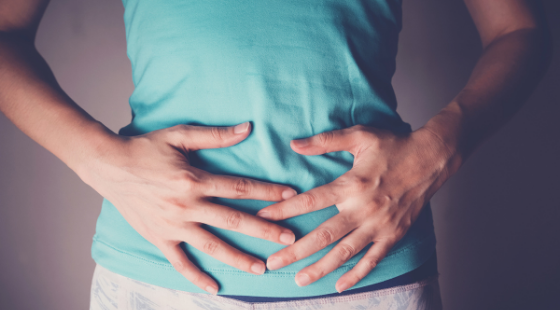
You may be surprised to know that the bacteria living in our gut often referred to as our microflora or microbiome can have a significant impact on our brain chemistry and how we feel, think and behave. We’ve written a little more about that here. The gut is often referred to as the “second brain” and has the ability to communicate via the nervous system, hormones, and the immune system.
Our gut is composed of trillions of bacteria and over 1000 different species. The composition of the microbiome varies from person to person, with contributing factors including age, diet, behaviour, environment, and genetics (Yang A.L., Kashyap et al., 2015).
Unfortunately, the microbiome is often under looked as an influencing factor in a wide range of neurological conditions despite the fact that it plays a role in Autism Spectrum Disorder, chronic pain, stress, Alzheimer’s disease, and Parkinson’s disease as well as Depression and Anxiety (Mayer EA, et al. 2014)
Serotonin is a neurotransmitter that affects many facets of human behaviour, such as mood, stress response, appetite, happiness and sexual drive. Interestingly enough, up to 90% of your body’s serotonin is produced by the gut microbiome. Research demonstrates a connection between healthy gut bacteria and lower rates of depression (1,2,3,4,5).
The common bacteria that we know are lactobacilli and bifidobacterium. These “friendly” bacteria have actually been shown to lower levels of brain-toxic compounds and can lower inflammation in the brain by reducing certain cytokine levels (inflammatory markers), These specific cytokines can cause anxiety, depressive symptoms and cognitive disturbances (Logan, 2006).
Research published in the American Society for Microbiology in 2012 has found that “good” gut bacteria can have a marked effect on GABA levels in the brain (a neurotransmitter that is involved in regulating anxiety, digestion, sleep and relaxation), which can help reduce feelings of anxiety and elevate our mood.
Another interesting factor is that the gut microbiome can have an influence on the medications that we take as it can play a role in, not only the effectiveness of the medication, but also on whether a person experiences side effects for the medication that they are taking (Flowers S.A., et al 2015).
So what do we need to do to help support a healthy gut microbiome and therefore a healthy mood?
#1. Eat your fruits and vegetables
Dietary fibre supports the growth of healthy intestinal bacteria. In fact, one study found the diversity in the gut microbiome was directly related to the variety of fruits and vegetables in a person’s diet. It also found that the microbial composition of the gut can be rapidly altered with dietary changes. (McDonald D., et al 2018).
A recent study found an inverse relationship between fruit and vegetables and future depression or anxiety. They found that eating four extra portions of fruit and vegetables could boost people’s mental health. The more fruit and vegetable people ate, the less likely they were to be diagnosed with a mental illness (Redzo. M, 2019).
Health Canada’s Recommended Fruit and Vegetable Intakes:
- Children 11 and under, 5 servings of fruit and vegetables daily
- Children 12 to 13 years, 6 servings of fruits and vegetables daily
- Females 14+ to 50 years, 7 servings of fruits and vegetables daily
- Males 14 to 50 years, 8 servings of fruits and vegetables daily
Meanwhile, The World Health Organization recommends 7-13 a day for adults and 5 servings for kids, plus eating the colour of the rainbow everyday.
If you or your kids have a difficult time consuming enough fruits and vegetables everyday, check this out.
#2. Consume fermented foods
Fermented foods are foods produced or preserved by the action of microorganisms. In this context, fermentation typically refers to the fermentation of sugar to alcohol using yeast, but other fermentation processes involve the use of bacteria such as lactobacillus, which help to make foods such as kimchi, yogurt, kefir, kombucha, and sauerkraut, may improve gut health, and subsequently, mood.
The fermentation process allows live bacteria to thrive in foods that are then able to convert sugars into alcohol and acids. During this process, probiotics are created. These live microorganisms support the growth of healthy bacteria in your gut and may increase serotonin levels (1,2).
If you don’t tend to consume a lot of fermented foods, check out this recipe for Coconut Yogurt Clusters!
#3. Consume Prebiotics
Unlike probiotic foods, prebiotic foods do not contain living organisms. They are the food for the probiotics which contribute to the health of the microbiome because they contain indigestible fibres that ferment in the GI tract. Prebiotic foods include artichokes, leeks, onions, garlic, chicory, cabbage, asparagus, legumes, and oats.
Additionally, research shows that consuming green tea, ginger, omega 3 in the form of fish oils, olive and flax oils can all help to increase the production of lactobacillus or bifidobacterial which can lower inflammation and toxins in the brain that can contribute to depression (Logan,2006).
#4. Take a Probiotic
There are a wide variety of probiotic supplements out there on the market and it can be hard to know which one is best for you. What we recommend is that you look for something that has at least 10 billion cultures, and has multiple strains.
We recommend HMF Multi-strain from Genestra. Genestra is well known for it’s probiotic line of supplements and this one comes with 15 billion cultures and contains 16 different live cultures. If you are interested in purchasing the product please check it out on our online supplement dispensary.
So, to support a healthy mood you need to support a healthy gut. A good start is to incorporate a variety of fruits and vegetables into your diet, get appropriate levels of fibre, consume prebiotic and fermented foods – and for an added bonus take a high quality probiotic.
References
Logan, Alan ND., The Brain Diet, Cumberland Publishing House, 2006
- https://pubmed.ncbi.nlm.nih.gov/25860609/
- https://pubmed.ncbi.nlm.nih.gov/25078296/
- https://www.ncbi.nlm.nih.gov/pmc/articles/PMC5864293/
- https://pubmed.ncbi.nlm.nih.gov/26760398/
- https://pubmed.ncbi.nlm.nih.gov/23384445/





